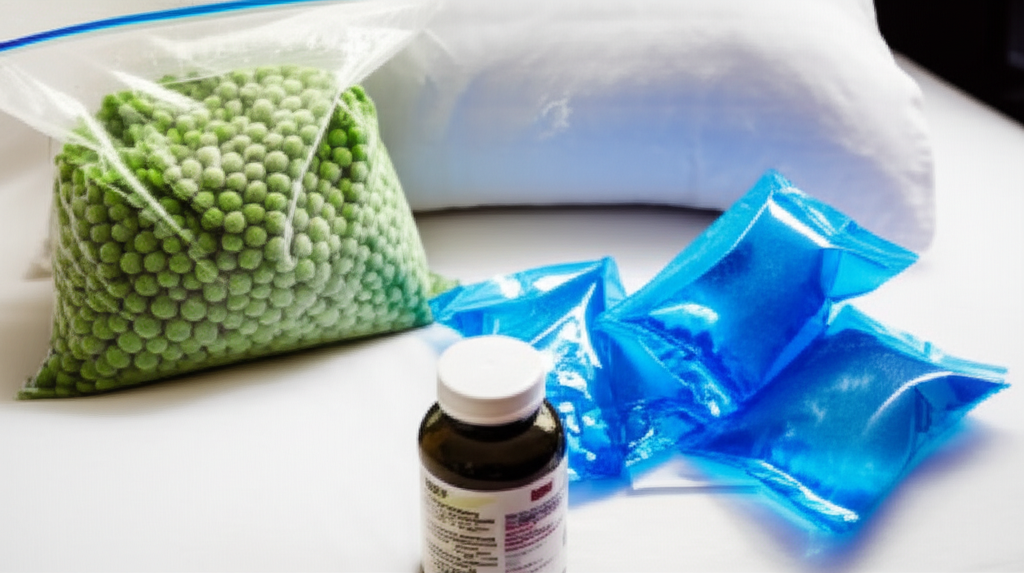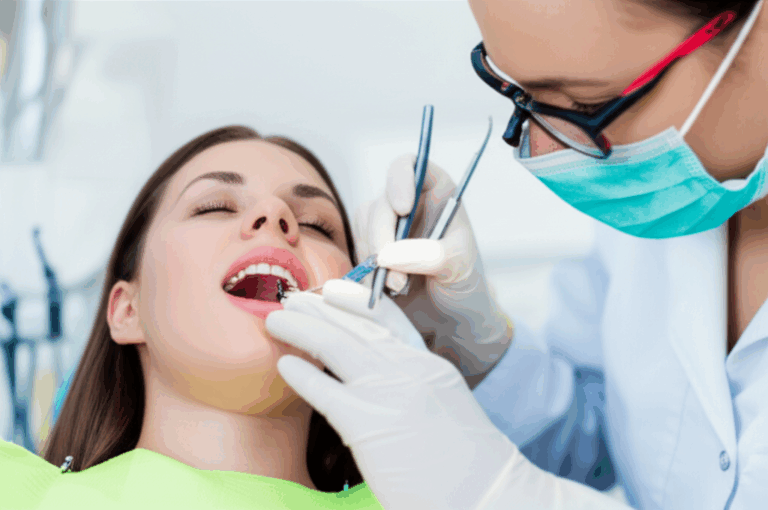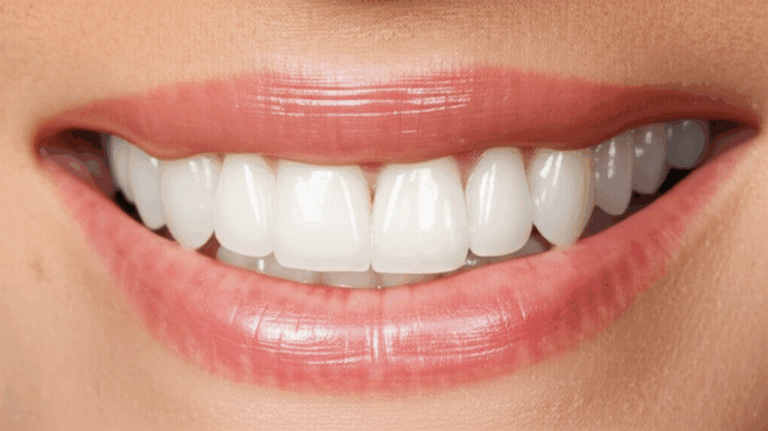
How to Effectively Reduce Swelling After Dental Implant Surgery: Your Recovery Guide
That swollen, achy feeling in your cheek—even a little tightness when you try to smile or eat—can be worrying after dental implant surgery. If you’re wondering, “Is this normal? How long is this going to last, and what can I actually do about it?” you’re not alone. Swelling happens a lot after dental surgery, and it can be uncomfortable or even a little scary.
We’ll answer your main questions, explain why you get swelling, and give you easy, dentist-approved ways to make it better. We’ll also tell you when swelling means you should call your dentist. By the end, you’ll know how to handle your recovery step by step without any confusion.
What We’ll Cover
In This Article
- Why Swelling Happens After Dental Implant Surgery
- Understanding the Swelling Timeline: What’s Normal and What’s Not
- Immediate Relief: Tips for the First 48 Hours
- Medications: What Actually Helps (and How)
- Lifestyle and Diet Changes for Faster Healing
- Home Care and Hygiene: Protecting Your Recovery
- When to Call Your Dentist: Warning Signs Not to Ignore
- Your Rapid Recovery Checklist
Why Swelling Happens After Dental Implant Surgery
Think about the last time you stubbed your toe—it got big and sore. This is just your body trying to protect and heal you. Your mouth works the same way. After dental implant surgery, your body sends extra blood and healing cells to the spot, which causes swelling.
Why swelling happens:
- Surgery moves your tissue: Even a gentle implant dentist has to move or cut your gum and jawbone to put in the implant.
- Your immune system reacts: Your body sends fluids and white blood cells to start healing.
- Fluid collects: All that action means extra liquid in the area, so your cheek and gum look swollen and feel sore.
Some swelling is not just normal—it’s important for healing.
How Much Swelling Is Normal?
People are all different. Some folks swell up a little, some a lot. Here’s what usually happens:
- Day 1: Swelling starts when the numbness goes away.
- Day 2–3: Swelling gets its worst. You might feel pretty puffy!
- Day 4–7: Most swelling goes down, and it’s less sore.
- Day 7+: Any left-over swelling fades out, but it can take up to 2 weeks if you had a tough surgery (like bone grafting or sinus lift).
Example: What’s Really Going On?
Picture your cheek and gums like a kitchen sponge. Right after surgery, that sponge fills up with fluid and looks puffy. As you heal, your body slowly squeezes out the extra water, and the swelling goes away.
Understanding the Swelling Timeline: What’s Normal, What’s Not
What if you wake up and your face looks puffier on Day 2? Or if you’re still swollen a week later? Here’s a simple timeline and what to watch out for.
Normal Swelling Timeline
- 2–3 days (48–72 hours): Swelling is at its peak—this is expected.
- By Day 4: Swelling should start getting better.
- By Day 7: Most swelling is gone, but some might still hang around if your surgery was bigger.
- 1–2 weeks: Small swelling can last, mostly after complicated surgeries.
When Swelling Is a Problem
- Swelling gets worse after Day 3, instead of better.
- The spot feels hot, much more red, or a hard lump pops up.
- You get a fever, chills, pus, or a bad smell or taste from your mouth.
- Unbearable pain that medicine doesn’t help.
- It’s hard to swallow, breathe, or open your mouth.
- Numbness sticks around for days or comes back after going away.
If you have these signs, call your dentist or oral surgeon right away. Things like infection or a deep bruise (hematoma) don’t happen often, but they can be serious.
Fact: Only about 1–3% of people with dental implants get bad swelling that needs special care. For most, swelling just goes away by itself, but you can do a lot to feel better as you heal.
Immediate Relief: Tips for the First 48 Hours
You want things to calm down, quick! Here’s what helps the most in the first two days, right when swelling is at its worst.
1. Ice and Cold Packs: The Best Swelling-Buster
How to Use:
- Wrap a cold pack or bag of frozen peas in a thin towel.
- Hold it on your cheek where the implant is—but never put ice straight on your skin.
- Keep it on for 20 minutes, then rest for 20 minutes.
- Do this as often as you can during the first 1–2 days.
Why It Works: Cold makes your blood vessels smaller, which means less fluid and less swelling. Research says doing this can lessen swelling by about 30%.
Tip: Set a timer, and never sleep with ice on your face.
2. Keep Your Head Up
- When you lie down or sleep, use one or two extra pillows to prop your head up.
- Try to have your head higher than your heart.
Why: This keeps extra fluid from building up in your face and jaw, so swelling isn’t as bad.
3. Rest—But Not Flat
Rest is important, but don’t stay flat in bed all day or you might swell more. Take it easy, watch TV, read, but don’t lift heavy things or do hard exercise.
Medications: What Actually Helps (and How)
People often ask, “Should I take something for this swelling?”
Here’s what works and why.
1. Over-the-Counter Medicines
Ibuprofen (Advil, Motrin)
- What it’s for: Lowers pain and swelling together.
- How: Ibuprofen blocks stuff in your body that causes swelling.
- How to use: Use the dose your dentist told you—like 400–600mg every 6 hours for adults. Don’t use more than it says on the label or mix with other pain meds unless your dentist says so.
Acetaminophen (Tylenol)
- What it’s for: Helps pain, but doesn’t lower swelling.
- Who should use: Good if you can’t use ibuprofen or need more pain help. Always take the right amount.
2. Prescription Medicines
Corticosteroids (like Dexamethasone)
- When used: If you’re really swollen, your oral surgeon might give you these for a few days.
- What they do: These medicines are strong against swelling, especially when you start right before or after surgery.
Stronger Pain Medicine
- Sometimes your dentist will give you stronger pain pills, but these don’t really help swelling—just the pain.
3. Antibiotics
These don’t fix swelling, but they keep away or treat infection. Always finish your medicine, even if you feel fine again.
Quick Tips:
- Don’t mix medicines unless your dentist says so.
- Watch out for side effects like rash or stomach aches—call your dentist if something feels wrong.
Lifestyle and Diet Changes for Faster Healing
Healing goes better if you take it easy on your mouth for a bit.
1. Soft Foods: Be Kind to Your Jaw
- Pick soft, cool, easy foods, like:
- Yogurt
- Applesauce or mashed banana
- Scrambled eggs
- Blended soups (wait for them to cool)
- Protein shakes
- Smoothies (sip, but don’t use a straw!)
- Avoid:
- Hot foods or drinks (they can cause more bleeding and swelling)
- Crunchy things, chips, hard bread
- Spicy or sour foods
- Foods with seeds or little pieces that could get stuck in your gums
This isn’t just for comfort! Soft food keeps your gums from getting irritated, which can make swelling last longer.
2. Drink Water
Keep drinking cool water all day—this helps your mouth heal faster.
- No straws! Sucking can pull out the healing clot and cause more problems.
3. Stay Away from These
- No smoking: It slows healing and gives you more problems with implants. Try to quit or at least take a break.
- No alcohol: It thins your blood, causes more swelling, and messes with your medicine.
- Don’t poke at the area: Don’t touch or feel the spot with your tongue or finger.
Home Care and Hygiene: Protecting Your Recovery
People worry: “Can I brush my teeth? Should I rinse my mouth?” The answer is yes, but be very gentle.
1. Saltwater Rinse
- After 24 hours post-surgery, start gentle rinses with warm saltwater.
- Mix one teaspoon of salt with a cup of warm (not hot) water.
- Swish gently—don’t spit hard. Do this a few times a day after meals.
- Don’t rinse your mouth fast or hard right after surgery—it could hurt the healing spot.
Saltwater keeps your mouth clean and helps calm sore gums.
2. Mouthwash (Only if Your Dentist Says)
- Some dentists want you to use a germ-fighting rinse. Only use as told.
- Don’t use ones with alcohol—they dry out and bother your gums.
3. Brushing and Flossing
- Brush your other teeth like normal, but skip the implant spot for a few days.
- Always use a soft toothbrush and go easy.
- After a few days, clean your mouth gently, but don’t brush right on the surgery spot until your dentist says it’s okay.
4. Rest—But Not Bed Rest
- Get plenty of sleep, and listen to your body.
- Avoid tough exercise for a week. No running, heavy lifting, or anything that gets your heart pumping.
When to Call Your Dentist: Warning Signs Not to Ignore
Your mouth is strong, but sometimes swelling means something’s wrong. Call your dentist or surgeon if:
- Swelling gets worse after Day 3.
- You have really bad pain that won’t go away with medicine.
- There’s pus, weird oozing, or a strong bad smell.
- You get a new fever, chills, or feel really sick.
- It’s hard to swallow or breathe.
- The spot turns very red, feels hard, or gets big bruises.
- Numbness or tingling won’t leave after days—or comes back after going away.
Very few people get these rare problems, but catching them early is better.
Your Rapid Recovery Checklist
Here’s your easy, dentist-checked plan to keep swelling down and heal up fast:
Frequently Asked Questions (FAQs)
How long does the swelling last after dental implant surgery?
Biggest swelling is at Day 2–3, gets better by Day 4–7, and sometimes hangs on (just a little) up to two weeks—especially after harder surgeries.
Should I use heat for swelling?
Never use heat the first 2 days. Later, if your dentist says you can, you might use a warm pack to help leftover swelling. Always ask first.
Is all swelling normal after dental implants?
Most of the time, yes. But if it hurts a lot, gets worse after Day 3, or you see pus, fever, or can’t swallow, call your dentist. These could be signs of infection or a different problem.
Who Gets More (or Less) Swelling?
You might swell up more if:
- You got several implants in one surgery.
- The procedure included a bone graft, sinus lift, or was more involved.
- You bruise easily or usually swell up from small injuries.
- You have health problems like diabetes.
On the other side, people who are healthy, young, and only had one simple implant usually heal with little swelling.
Fun Fact: Some top dental labs (like a zirconia lab) make crowns that fit nicely and help your gums heal smoother, so there’s less swelling.
Quick Navigation: More Resources for Implant Patients
Want to know more about dental implants? Check out these helpful guides:
- Implant cost: Find out what you’ll pay and how to plan ahead.
- Implant dental laboratory: See how your new tooth is made.
Your Healthy Takeaway: Calm, Confident Recovery
To sum it up:
- Swelling after surgery is normal, and it often looks worse before it fades.
- Ice, head elevation, and rest help most in the first days.
- Take only the medicine your dentist says.
- Eat soft, cool foods, keep your mouth clean but gentle, and don’t smoke or drink.
- Most swelling is not serious, but if you see warning signs, call your dentist right away.
Remember: Take your time and care for your mouth now—you’ll enjoy your new smile sooner. If you have any questions, ask your dentist—they’re happy to help you heal.
Note: Always listen to your dentist for advice that fits you best. This information is to help you, not replace what your dentist tells you. Take care and heal up soon!








